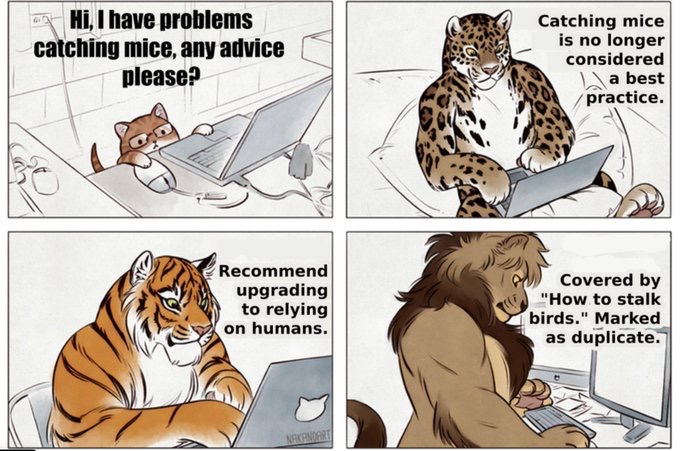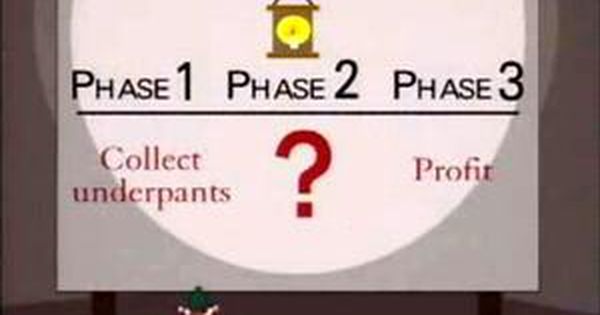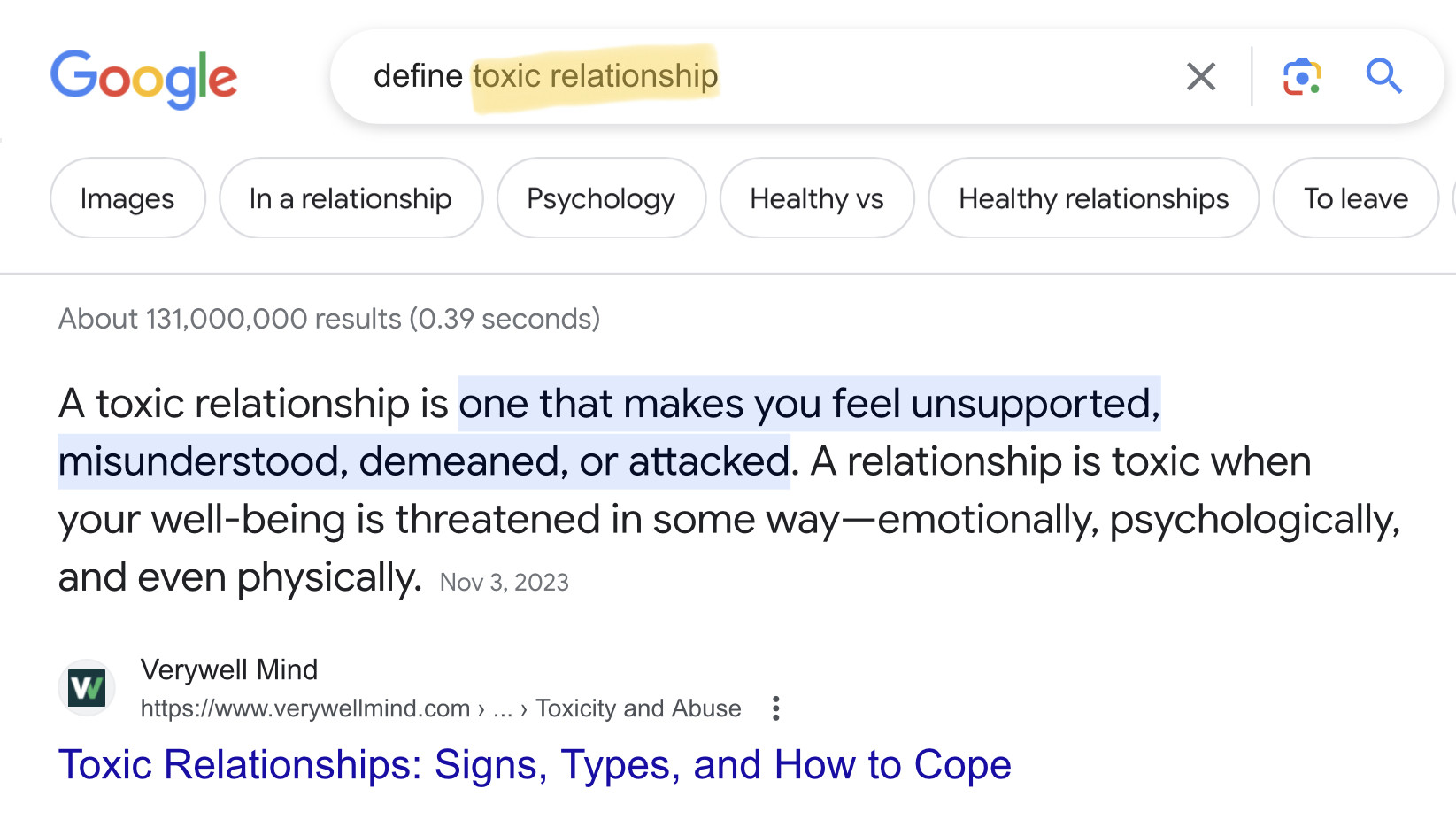Popularity- and Ahead-of-the-crowd bias
I am not sure if this can be overcome, and if so, how or if it is just an inherent quirk of any ecosystem - but Stack Overflow selects for people who work in popular frameworks, and especially those who did so before others.
That means that those who work in the long tail of technology - from where every single blockbuster technology necessarily originated - in a fashion that many would attest to as being purely by chance - are being sidelined.
Considering that, I find it remarkable how effective the simple scoring mechanism is, but I suspect that its effectiveness is because a high level of peer selection still takes place and it simply serves to regulate the influx of new members.
Perhaps if not the number of upvotes, but simply the number of questions or answers with interactions, were counted, for access to certain functions - would that be a more egalitarian selection mechanism able to defeat these biases?
Not enough helpful "meta" comments
I think the reason people don't follow the rules is because many of them are literally internet newcomers who do not yet know that there are things like FAQ's or house rules and even if they are aware do not yet value them.
The way to bring this about, in my opinion, would be to make sure that reviewers know where to find these and rather than just being curt or just answering the question - in a kind way refer people to helpful meta information with links, and by spelling out what and how, to help them to follow a better thinking process when engaging with Stack Overflow.
Maybe some random multiple-choice quiz questions can gate access to moderation privileges, but in a not-too-obvious way. If you knew that you could become a moderator, you might be too incentivised to game the system. I think Stack Overflow does a great job of allowing people to "grow into" the community - and it does this by keeping newcomers unaware of all that awaits. (Maybe when signing up if you noted that you were referred by a friend, this could be taken into account.)
Too many answers in comments / reviewers just answering in comments
I think this is also brought about by the review system - as reviewers are the first to see many questions, and are not encouraged to answer them by the user interface, they tend to just answer the question in a comment. Again something that could perhaps be improved by better selection of reviewers, or better orientation or testing, or vetting.
Perception of numbers, and Up / Downvotes
Instagram - and Facebook - did experiments where they hid the number of likes, and subscribers / friends - and surveyed the emotional effect on users. Perhaps Stack Overflow can experiment with something similar - I know this might seem like somewhat of a radical proposal - but imagine if - instead of + and - votes, there were simply "plus green" or "plus grey" votes - or some other color - or "Plus helpful" vs "plus confusing" - it might come across as less scalding.
Group Think
Confirmation bias affects even the smartest of the smart. I believe that there's a good reason that Reddit hides the vote counts for new posts, for example, and I can imagine that seeing a downvote immediately triggers an emotional reaction in anyone. The reaction it triggers in me is to want to upvote it, it's rare that I can't find a reason to - yet I don't understand - or perhaps don't particularly care about the inner workings of the reputation system - although I can't escape the feeling that I'm somehow tainting myself by upvoting hugely unpopular or downvoted questions or answers.
Time
Wow, this question has been up here for almost a year. I just stumbled upon it now. Is there a way to distinguish between "evergreen" topics, and "timely" ones? Is there a place for questions with expiry dates? Perhaps the idea of time can be given more thought... I do know that I am personally not frustrated by "necroposting" - ever - and that I am frustrated by stale information that can not be refreshed or updated trivially. I am frustrated by rehashes of the same old things with just "2020" thrown in there to make it seem "fresh". But I do think that a visual cue, such as popularity graph of a certain topic, can possibly go a long way to inform a reader at what point in the conversation he or she walked in, which would allow them to socially align themselves appropriately. I wear my "Excavator" badge with pride.
Ban explanations or perhaps stats or context
A blunt message that you've been temporarily banned, with no further explanation, while perhaps not particularly scathing to a newcomer, can be very harsh on someone to whom this has become a sanctuary. An explanation or some more detail or context, or an easier outlet or discussion around that, can go a long way toward creating a more friendly and welcoming environment.
Suggested activities
When you've been banned, or had your question deleted, especially if it was something you put a lot of time and thought into, you might end up feeling lost. A visual suggestion for where you can find a discussion that can help you understand why, presented thoughtfully in such an instance, might help draw you into a part of the community where you may well be able to turn your energy into something constructive. Perhaps even a suggestion box in such instances, would help.
Markdown
I'm surprised it's not on the list... I guess it falls under "design" though. It can be daunting to master for someone who has only used a computer for a year or two - especially if they're used to only GUI's and WYSIWYG editors - but this might be a blessing in disguise - and an easy learning / teaching opportunity - where some additional wisdom can be imbued.
Unpopular opinions are seldom welcomed
Need I say more? If you ask a stupid question, you're guaranteed tens or hundreds of downvotes. Is that the best way to deal with this? In school - and indeed in life, we're taught that there are no stupid questions. How did we turn this around here - and could it hold a key to improving the community here?
Feelings... Counselling?
It's all about feelings really. Ratings are displayed, and people are drawn to it. Getting a ban for doing something that you've been taught all your life is good, feels like a punch to the stomach. Perhaps more explanation and better counseling to those who are disciplined by the system? Wait, that was perhaps a telling slip - as I perceive this to be a system rather than a community.
Imagine how hard it must be for someone who is adamant about something that they are right about, but the community is wrong about, to use SO? But if they're banned, what recourse do they have? Counselling to soften the blow would go a long way toward building community - and even that could be crowd sourced, and people herded towards it. Is anything out of scope here? I would give up on a lot of things, before I had to give up on what makes us human - and bringing some of that humanity to the online world.
Social Context
Nevermind local context: for example, despite using Stack Overflow for more than a decade, I have never seen its blog. Why? People randomly stumble across different sections here, and gaining context around what's going on can take time. Can someone who just walked in on a long conversation, offer valuable insight? Sure. Context can blind us, but it can also be a barrier. This is grossly amplified in peoples' individual social contexts. Some months I can barely put food on the table, why am I here in the first place - am I even welcome here, because of my social context? Should I even be here. The irony is, that, people who are unemployed often have more time too.
Every day literally millions of people connect to the internet for the first time. Many people come from vastly different circumstances, and have yet no concept of the social norm of others. This shows - and the best way to teach is to lead by example. The internet seems to amplify our instant gratification urges and many of us turn to the internet purely out of desperation or necessity, and it's expensive and our circumstances dire - and this might come across as ungrateful or rude - when in fact many peoples' circumstances are much worse - seeing as that Stack Overflow ranks highly on search results, and attracts a large sampling of the internet community, improving even more on the already great housekeeping here can go a lot further to creating a welcoming community - and it can potentially improve disproportionately more with a simple measure such as just reminding those who can review and access meta chats, how different the circumstances of others can be and to encourage them to be patient and thoughtful. Or perhaps just selecting reviewers who are older and more experienced, or more world-wise.



